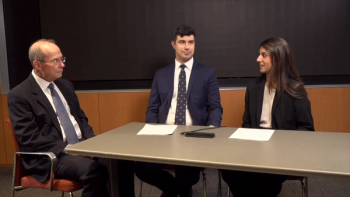
AAO: Strong link found between normal-tension glaucoma, Alzheimer’s disease
In a poster presented at the American Academy of Ophthalmology’s 2022 annual meeting in Chicago, Yu-Yen Chen, MD, PhD, noted that patients diagnosed with normal-tension glaucoma (NTG) have a significantly higher risk of developing Alzheimer’s disease compared with those without NTG.
Patients diagnosed with normal-tension glaucoma (NTG) have a significantly higher risk of developing Alzheimer’s disease compared with those without NTG, according to Yu-Yen Chen, MD, PhD, from the Taichung Veterans General Hospital, Taichung, Taiwan, and the Wilmer Eye Institute, Johns Hopkins University, Baltimore.
Chen presented a poster at the American Academy of Ophthalmology’s 2022 annual meeting at McCormick Place in Chicago.
In a large, retrospective, population-based cohort study, Chen analyzed the Taiwan National Health Insurance Research Database to identify patients from January 1, 2001, to December 31, 2013.
Chen described that 15,317 subjects with NTG comprised the NTG group and 61,268 age- and gender-matched subjects without glaucoma comprised the comparison group. The incidence rates of Alzheimer’s disease in the 2 groups were compared.
After adjusting for diabetes, hypertension, hyperlipidemia, coronary artery disease, and stroke, the analysis showed that the NTG group had a significantly higher risk of Alzheimer’s disease (adjusted hazard ratio, 1.52; 95% confidence interval, 1.41-1.63), ie, a 52% greater likelihood of developing Alzheimer’s compared with those without glaucoma. The significant risk factors identified were age, female gender, and stroke; however, the types of glaucoma medications used did not protect against Alzheimer’s disease or increase the disease incidence.
“People with NTG are at a significantly greater risk of developing AD compared with individuals without glaucoma,” Chen concluded and advised that individuals with NTG should be screened for Alzheimer’s disease.
The 2 diseases are related in that neurodegeneration is the basis for both, including the retinal ganglion cells in the optic nerve in NTG and the nerve cells in the brain in Alzheimer’s disease.
Newsletter
Don’t miss out—get Ophthalmology Times updates on the latest clinical advancements and expert interviews, straight to your inbox.





























